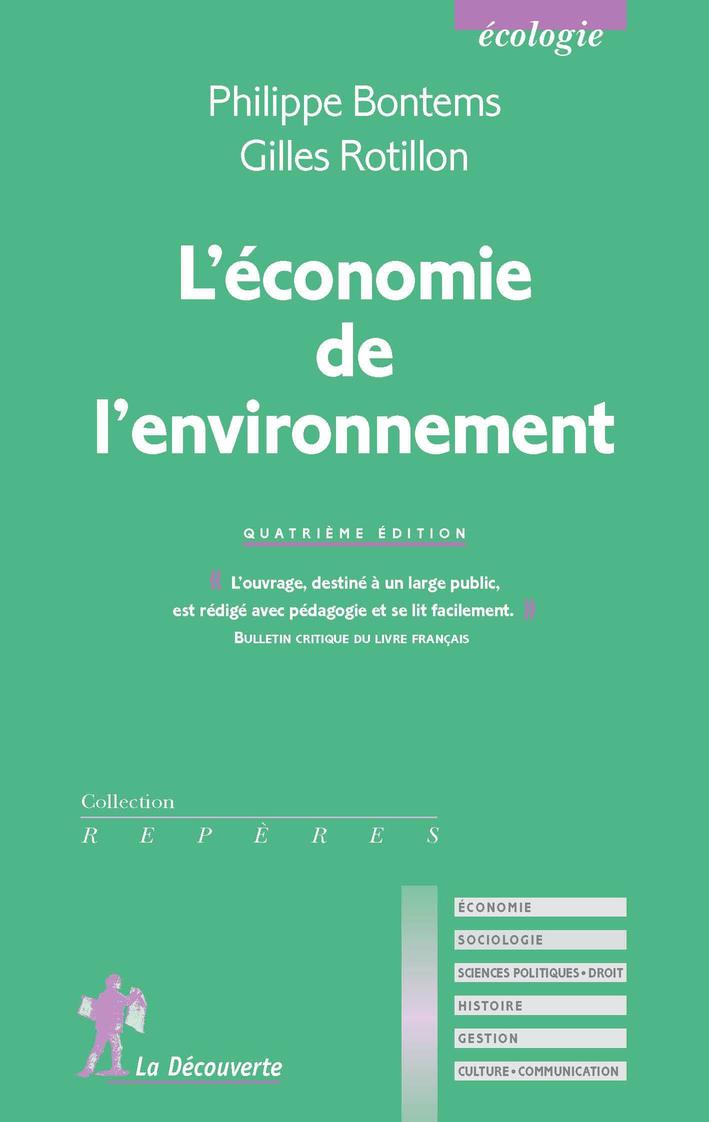Even if the trend is at centralizing, state and managing ecology, market solutions can also protect the environment.And potentially better than the solutions offered elsewhere ...
Each century brings its share of problems for lovers of freedom, peace and prosperity.The defenders of freedom had to face the 20th century in the threatening shadow of centralization and fought against the socialists and the staters who pleaded for the abandonment of individual freedom as well as a greater centralization, atName of collective prosperity.But the fall of the iron curtain made it possible to demonstrate once and for all that collective prosperity is only compatible with economic and individual freedom.
Despite this remarkable victory, the threatening shadow of centralization, with the aim of eradicating economic and individual freedom, returned to haunt us at the dawn of the 21st century.
Freedom to ... protect the environment?
Now, these calls for the abandonment of individual freedom and the eradication of freedom of choice are no longer based on materialist considerations, but on truly humanist, sometimes pretentious concerns, concerning the environment and the effects ofits degeneration of the chances of survival of the human race.
It almost looks like pages of a bad comedy the fact that economic thought and general consensus have already turned against capitalism.So much so that even the idea that a free market economy is not necessarily opposed to the conservation of the environment now seems to be sufficiently seditious to be judged as if it were a crime against thehumanity.
Suddenly, while the markets have clearly demonstrated their unique capacity to ensure peace and prosperity, the majority of economists and intellectuals in other areas than the economy have become Malthusians who portray a dark future and prey to themisery, due to overconsumption, overcrowding and decreasing yields induced by the scarcity of resources.

It is therefore up to defenders of freedom to demonstrate that private property, free market economy and ecology are in fact compatible.
Private property and pollution
Property rights on objects or spaces allow individuals to become responsible for their property.This makes it possible to gain efficiency, since no one can affect the ownership of others without paying him adequate damages, while imposing restrictions on the actions of the owner himself.This finally leads everyone to behave in a way that does not affect the property of others.
If the economic activities of an individual lead to an environmental degradation in a given place, this constitutes a case of violation of the property of others.For example, when a factory rejects harmful substances in a body of water which it is not owner.
Thus, if we approach the problem from the angle of the right of private property, the majority of cases of pollution, whether it be air pollution, water pollution or noise pollution, constitute inmakes violations of the property rights of others, and the worsening of pollution levels results from the inability to grant and properly enforce these property rights.
On the one hand, this encourages polluters to affect the ownership of others without having to pay for damages in a punitive basis sufficient and, on the other hand, this prevents the adaptive behavior of the markets from happening.
If punitive damages were fully applied in application of property rights recognized within the framework of a rule of law, polluters would be encouraged to modify their behavior, taking into account the high cost that these damages would represent for them, thiswhich would lead to a reduction in pollution levels.
A false idea
The assertion that free markets and the conservation of the environment are antinomic is also based on the idea that the increase in production and consumption is the main reason at the origin of environmental degradation,And that the right way to deal with it would be that consumption and production are planned centrally by central banks and states, through national quotas, prices control and other supervisory measuresMarket mechanisms.
Forest fires are probably-at least in the United States, but also in Canada or Australia, in particular-the most significant proof that environmentalists put forward to demonstrate both the existence and the danger of global warming today'hui.
But forest fires can also be used to demonstrate the effectiveness of market -based approaches and private property compared to government solutions based on public property from forest spaces in order to eliminate forest fires.
This is what we will see tomorrow ...
Article translated with the authorization of the Institute bets.Original in English here.
Trustpilotécologismeenvironnementlibéralismepropriété privé







